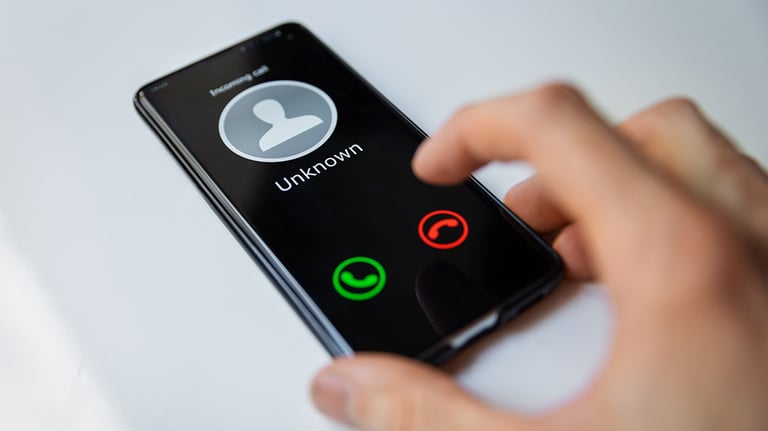The Dirty Dozen Tax Scams You Need to Avoid
How to spot scammers and ways to protect yourself from them


With all its unusual extensions, the 2019 tax season is a recent memory. Even so, the next one is approaching, and with it, opportunities for scammers to take advantage of taxpayers.
Since 2014, the IRS has annually compiled a list of the tax season's most likely scams. This year's list, the "Dirty Dozen,” has been updated with evolving schemes related to coronavirus tax relief.
Five Major Tax Scams to Watch For
Be alert for these potential scams as you seek tax information, hire a preparer, look for your refund, and respond to emails and phone calls.
Phone Call Scams

This scam method has been widely and successfully used, as it plays on fear and urgency. A scammer calls, impersonating an IRS agent, and claims that you've done something wrong—demanding payment or even threatening arrest.
Note that the IRS will never demand immediate payment, threaten, or ask for financial information over the phone. If you're convinced you do have a tax problem, hang up with the potential scammer and find your local IRS Office's contact information.
Offer in Compromise
Taxpayers with significant debt who have exhausted other payment options might be interested in an Offer in Compromise. This interest allows aggressive tax preparers to take advantage of your situation and charge high fees.
Before hiring assistance, note that this program is highly selective. Only a third of applications were accepted in 2019, so don't let a company promise you acceptance. First, use the pre-qualifier tool on the IRS website that enables you to determine if you qualify for this program.
Ghost Tax Preparers
Ghost Preparers are tax preparers who don't sign the bottom of the return they prepared. By law, any hired preparer must (digitally) sign the return and include a PTIN number.
Refusal to sign your return may hint at potential fraud. Perhaps the preparer talked you into filing something that wasn't required or inflated your refund by including credits you were not eligible for.
Each taxpayer is responsible for their tax return, even if they don't prepare it. Therefore, protect yourself. Don't work with Ghost Preparers or preparers that charge a percentage fee based on your refund.

Phishing
This year the IRS reports a tremendous increase in such phishing activity. The IRS found such attacks recently have used keywords such as coronavirus, COVID-19, and stimulus.
The IRS won't initiate contact via email or social media to discuss a bill, refund, or Coronavirus economic impact payments. Take caution to determine the source of all communications, and don't click on any links.
Fake Charities
The holiday season, Covid-19 related needs across the globe, and a desire to reduce one's tax liability create a perfect opportunity for scammers to profit. From counterfeit websites impersonating real charities to fictitious charities altogether, scammers are working to intercept your donations.
Only give to organizations with which you have a personal relationship and only give by directly searching for and visiting the charity website yourself. For added security, use the IRS Tax Exempt Organization Search tool to ensure the charity you donate to is an appropriately registered charity.
